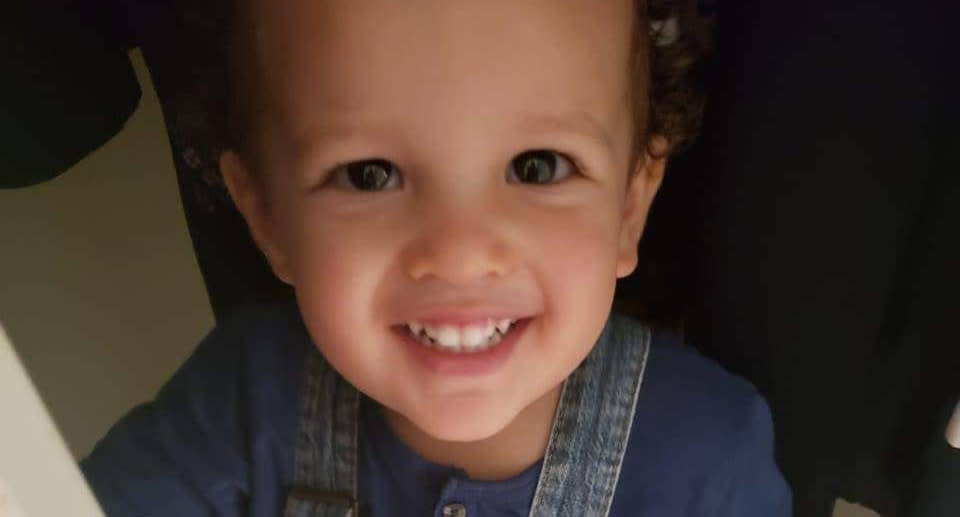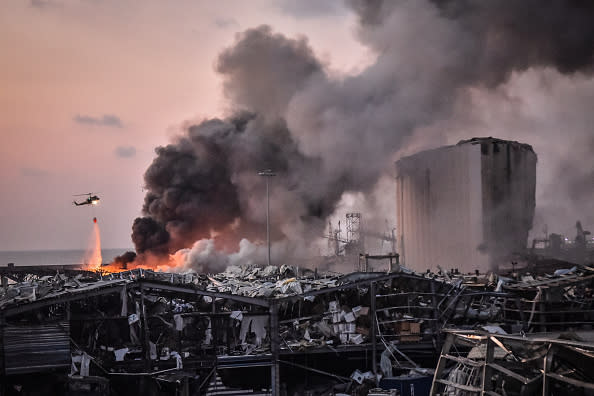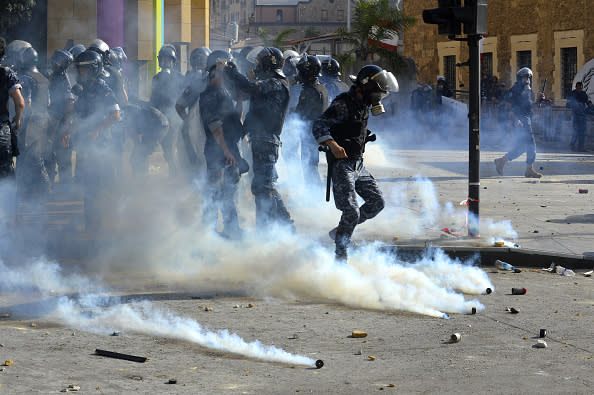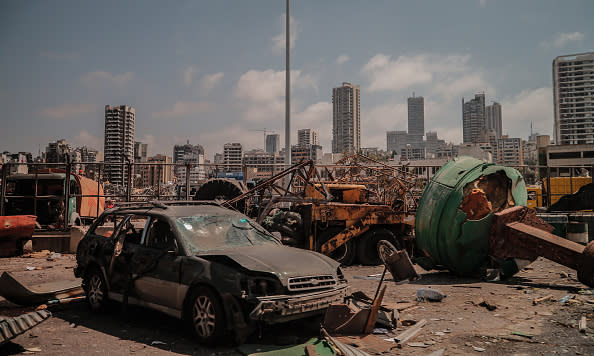Australian killed in Beirut explosion identified as two-year-old boy
A two-year-old has been named as the Australian victim killed in the Beirut explosion which ripped through the Lebanese capital earlier this week.
The Department of Home Affairs are helping the family of Isaac Oehlers, who is believed to be from Western Australia.
In a statement released by the Department of Foreign Affairs, the family expressed their grief at the loss of their young son.

"We are heartbroken by the sudden and tragic loss of our beautiful boy following the disaster in Beirut," the statement read.
"Isaac was two and will be deeply missed by family and friends.
"The family would like to thank everyone who has offered comfort and support to us, and would like to express our condolences to everyone in Lebanon who is suffering from this devastating tragedy.
"We request that the media respects our privacy at this difficult time."
Man's tragic last phone call with fiancée who died in Beirut explosion
Australian man's horror as friends 'ripped apart' in Beirut explosion
Before and after photos show 'apocalyptic' aftermath of Beirut explosion
In Lebanon, protesters stormed the streets on Saturday angry over this week’s devastating explosion.
The protesters said their politicians should resign and be punished for negligence they say led to Tuesday’s blast, the biggest ever to hit Beirut, that killed 158 people and injured more than 6,000, compounding months of political and economic meltdown.
A policeman was killed during the clashes, a spokesman said.
An officer at the scene said the policeman died when he fell into an elevator shaft in a nearby building after being chased by protesters.
The Red Cross said it had treated 117 people for injuries on the scene while another 55 were taken to hospital. Policemen wounded by stones were treated by ambulance workers. A fire broke out in central Martyrs' Square.

Dozens of protesters broke into the foreign ministry where they burnt a portrait of President Michel Aoun, representative for many of a political class that has ruled Lebanon for decades and that they say is to blame for its current mess.
"We are staying here. We call on the Lebanese people to occupy all the ministries," a demonstrator said by megaphone.
About 10,000 people gathered in Martyrs' Square, some throwing stones. Police fired tear gas when some protesters tried to break through the barrier blocking a street leading to parliament, a Reuters journalist said.
Police confirmed shots and rubber bullets had been fired. It was not immediately clear who fired the shots. Riot police shot dozens of tear gas canisters at protesters, who hit back with firecrackers and stones.

TV footage showed protesters also breaking into the energy and economy ministries.
They chanted "the people want the fall of the regime", reprising a popular chant from the Arab Spring uprisings of 2011. They held posters saying "Leave, you are all killers".
The US Embassy in Beirut said the US government supported the demonstrators' right to peaceful protest and urged all involved to refrain from violence.
The embassy also said in a tweet that the Lebanese people "deserved leaders who listen to them and change course to respond to popular demands for transparency and accountability".

Prime Minister Hassan Diab said the only way out was early parliamentary elections.
The protests were the biggest since October when thousands of people took to the streets in protest against corruption, bad governance and mismanagement.
“You have no conscience, you have no morality. Go home! Leave! Resign, Enough is enough,” shouted one of the protesters.
“What else do you want? You brought us poverty, death and destruction,” said another.
Soldiers in vehicles mounted with machine guns patrolled the area. Ambulances rushed to the scene.
"Really the army is here? Are you here to shoot us? Join us and we can fight the government together," a woman yelled.

Tuesday's blast was the biggest in Beirut's history. Twenty-one people are still reported as missing from the explosion, which gutted entire neighbourhoods.
The government has promised to hold those responsible to account. But few Lebanese are convinced. Some set up nooses on wooden frames as a symbolic warning to Lebanese leaders.
"Resign or hang," said one banner at the demonstration.
The prime minister and presidency have said 2,750 tonnes of highly explosive ammonium nitrate, which is used in making fertilisers and bombs, had been stored for six years without safety measures at the port warehouse.
with AAP and Reuters
Do you have a story tip? Email: newsroomau@yahoonews.com.
You can also follow us on Facebook, Instagram and Twitter and download the Yahoo News app from the App Store or Google Play.



